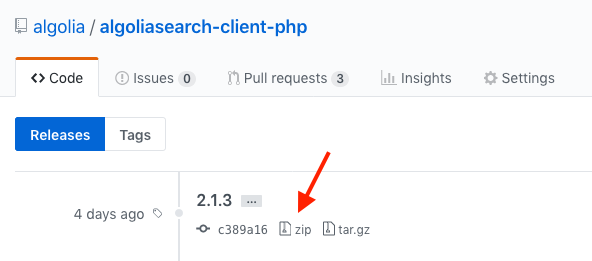Setting Up Algolia
The first step of integrating Algolia in your WordPress instance is to create a custom plugin. The plugin takes care of interfacing with the PHP API client and holds the indexing logic.
For the sake of simplicity, this guide doesn’t include files and details you would typically add when publishing a plugin to the WP marketplace.
Creating a custom plugin
In your WordPress instance, add an algolia-custom-integration folder under the wp-content/plugins/ directory, and create an algolia-custom-integration.php file. Then, paste the following code into it:
1
2
3
4
5
6
7
8
9
10
11
12
<?php
/**
* Plugin Name: Algolia Custom Integration
* Description: Add Algolia Search feature
* Text Domain: algolia-custom-integration
* Version: 1.0.0
*
* @package Algolia_Custom_Integration
*/
// Your code starts here.
Head to your WordPress admin dashboard and activate this new plugin.

Importing the Algolia PHP client
Install with Composer
You can use Composer in your plugin to install the API client and its dependencies. In your terminal, from the root of your plugin, execute the following command. It creates the composer.json and composer.lock files, as well as a vendor directory containing all the dependencies.
1
composer require algolia/algoliasearch-client-php
Install without Composer
You can directly download the latest version of the Algolia API client on the GitHub release page.

Then, extract the archive inside the plugin directory and rename the top folder to api-client.
In your terminal, navigate to the api-client folder and run the following command:
1
php ./bin/install-dependencies-without-composer
This creates a new api-client/vendor/ directory with the required dependencies.
Instantiating the Algolia client
You can now instantiate the Algolia client in the main plugin file and make it globally available.
1
2
3
4
5
6
7
require_once __DIR__ . '/api-client/autoload.php';
// If you're using Composer, require the Composer autoload
// require_once __DIR__ . '/vendor/autoload.php';
global $algolia;
$algolia = \Algolia\AlgoliaSearch\SearchClient::create("YourApplicationID", "YourAdminApiKey");
